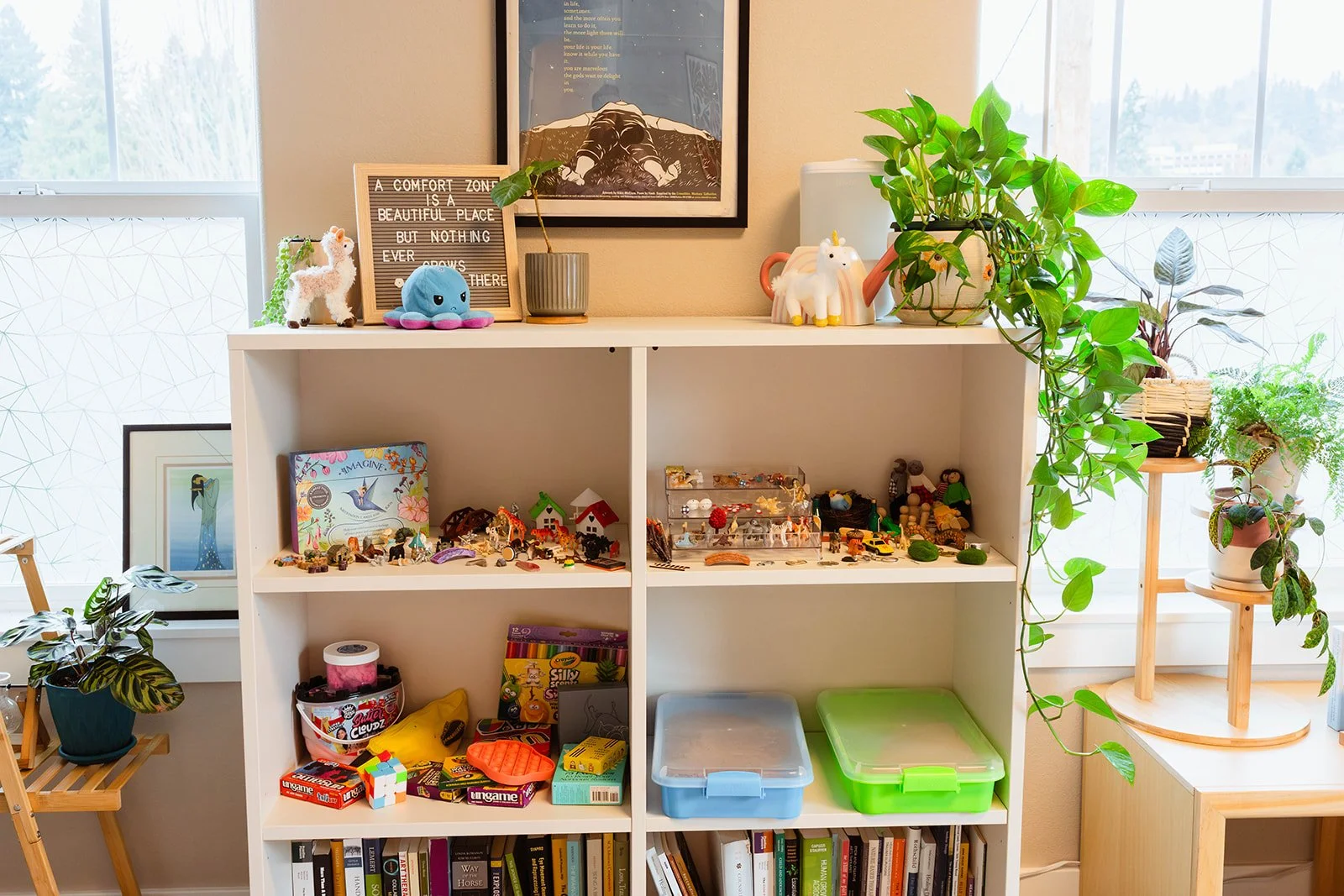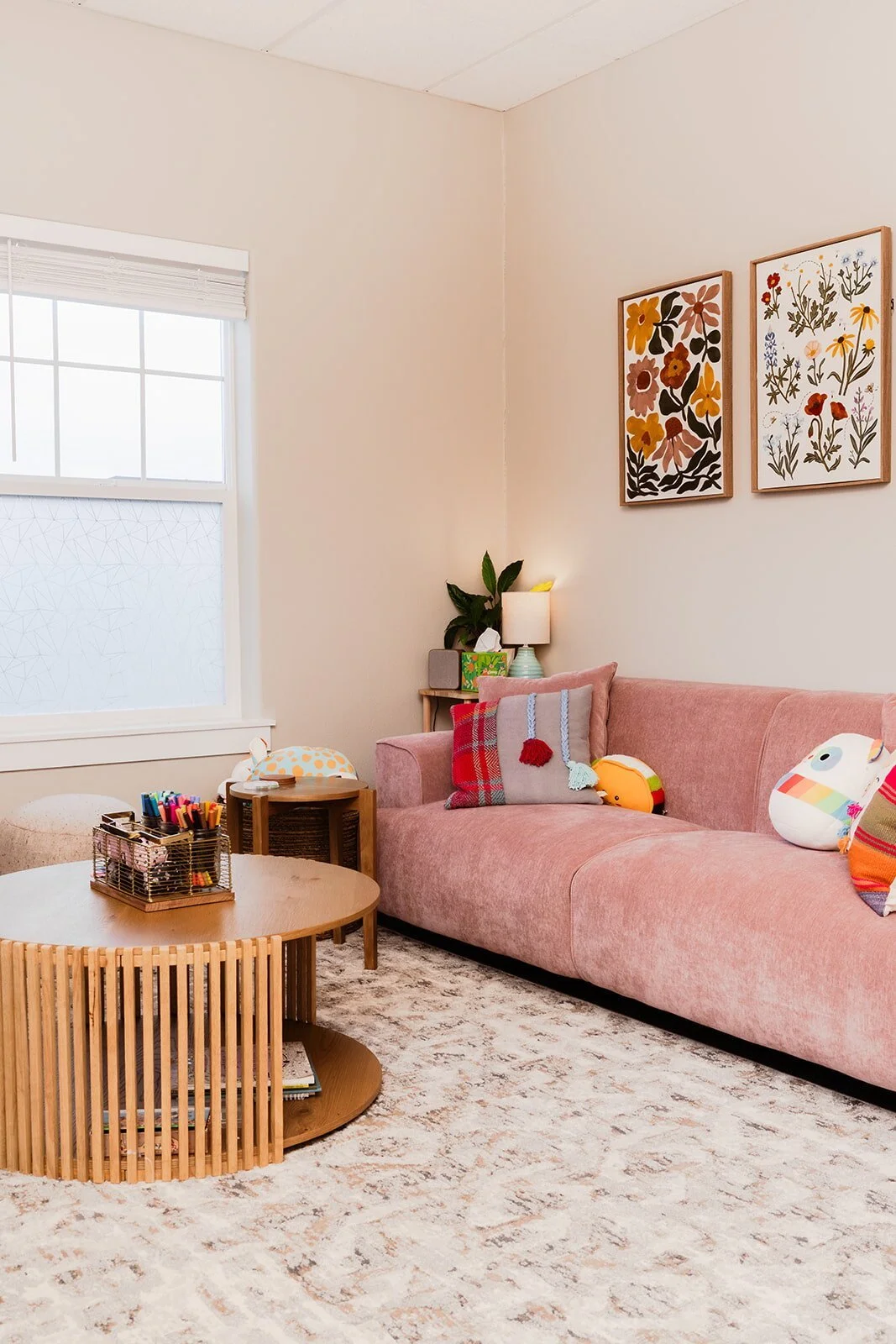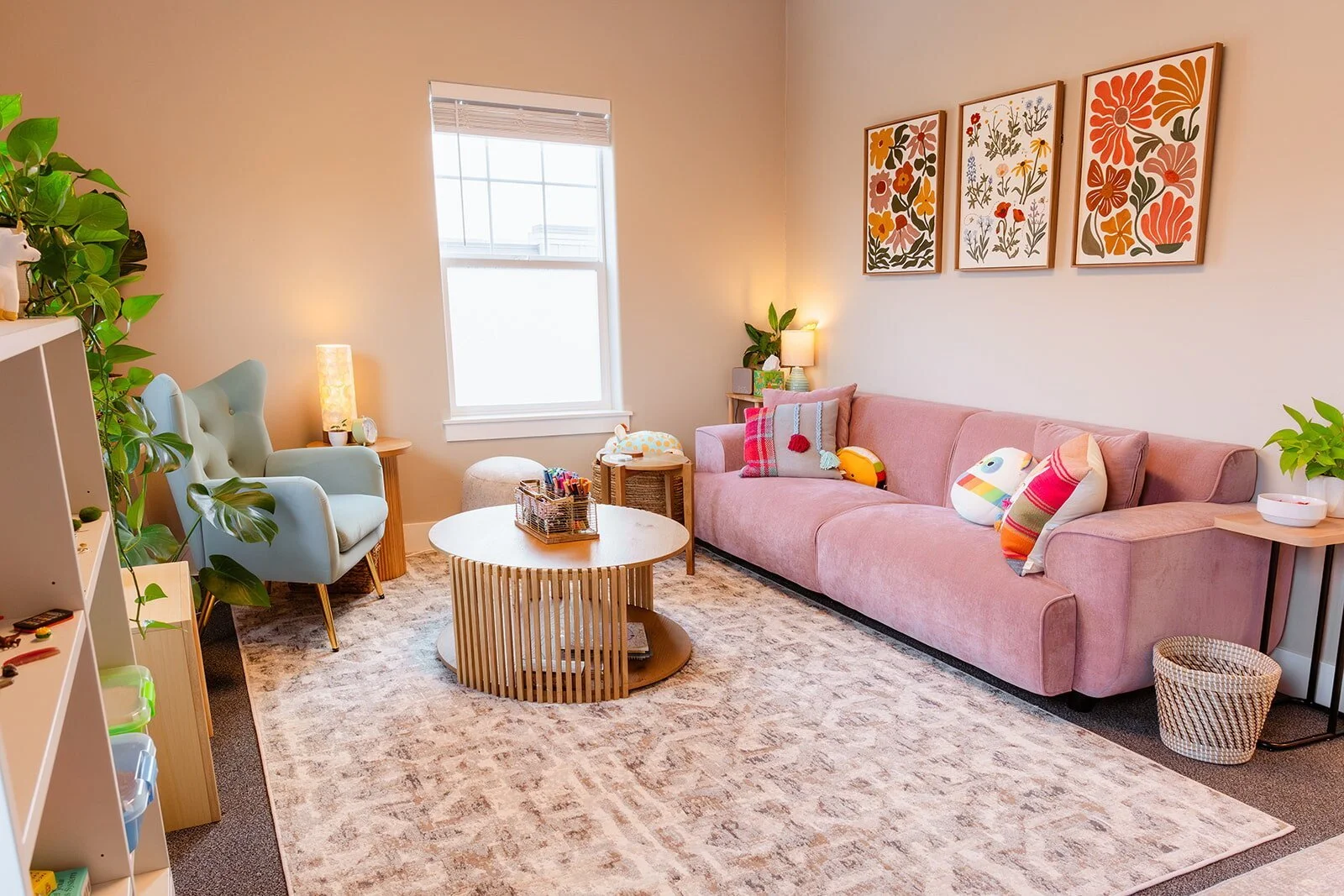
in-person in West Linn | Oregon telehealth
therapy for busy Brains, Tender Hearts, and Hard Seasons
Helping kids, teens, adults, couples, and families navigate neurodivergence, anxiety, relationship conflict, and parenting challenges.
kids & teens
adults
Couples & Families

Life is a lot right now — for kids, for teens, for adults, for parents.
Maybe you’re navigating anxiety that spirals at the worst times, ADHD overwhelm that’s draining you, or a family dynamic that feels stuck in the same loop. Maybe your teen is struggling and you’re doing everything you can — but nothing seems to make it easier.
Whatever the story, you don’t have to figure it out alone.
Welcome to Rising REsilient Counseling
Get support that is grounded in compassion, evidence-based tools, and a belief that people do best when they feel understood, not judged.
You (or your child) might be struggling with:
anxiety, chronic stress, or emotional overwhelm
depression and burnout
ADHD or autism (diagnosed or exploring)
masking, perfectionism, or low self-esteem
family conflict and communication struggles
mismatched expectations or support needs
emotional shutdowns or blowups
You don’t have to keep white-knuckling your way through it. With the right support and tools that fit your wiring, you can start to:
-
Move from constant overwhelm to a little more steadiness
Understand what your brain and body are actually trying to tell you
Build routines and supports that work for your wiring
-
Navigate big feelings without shutting down (or blowing up)
Develop coping skills that are actually usable in real life
Learn ways to regulate, reset, and come back to center
-
Break out of repeating arguments and “we’re not hearing each other” loops
Support your child or teen with tools that fit their brain, not generic advice
Build calmer, more compassionate conversations at home
-
Shift from survival mode to something that resembles breathing room
Practice new skills until they become your default, not your exception
Move toward a life that feels spacious, authentic, and aligned with who you are
How I Can Support You
-

individual therapy
For kids (10+), teens, and adults who want to understand themselves better, manage anxiety or burnout, build healthier patterns, and feel more grounded day-to-day.
-

Parent & Family Support
When communication feels tense or confusing, we’ll work together to slow things down, repair what’s frayed, and create a little more ease and connection at home.
-

Neurodivergent-Affirming Care
Support for ADHD, autism, and wired-differently brains. No fixing, no forcing. Just helping you build a life that actually works for you.
“
“The most interesting people you’ll find are ones that don’t fit into your average cardboard box. They’ll make what they need. They’ll make their own boxes.”
-Dr. Temple Grandin
i specialize in:
01
kids & teens
02
family & relationship conflict
03
parenting
Parenting while neurodivergent — or raising a neurodivergent kid — can feel like running two different operating systems on the same device. I help you understand each other’s wiring, lower the chaos, and build connection that actually works for both of you.
lindsey Regier, LPC.
Support That Sees the Story Beneath the Struggle.
If you’re here, you’ve probably tried everything people said “should” work — and it didn’t. That’s usually a sign your brain (or your kid’s brain) isn’t the problem; the approach is.
My work is about decoding the story behind the struggles, supporting your child in a way that fits their wiring, and helping you feel confident instead of overwhelmed. No judgment, just practical tools and real support.
ready to get started?
Book a consultation call or schedule an intake.
I’ll reach out with next steps and make sure we’re a good fit.
We meet, and build a plan that feels supportive — not overwhelming.
Tired of winging it alone?
A life that doesn't feel so hard is possible.
get in touch.
frequently asked questions
-
You’re still in the right place. Labels can be helpful, but they aren’t required. Therapy isn’t about sorting you into a category — it’s about understanding how your brain works and what helps you feel more like you.
-
Absolutely. Sometimes therapy starts because a parent’s worried about their kid — and sometimes it’s because parenting itself feels overwhelming. I work with parents who are supporting neurodivergent kids and parents who are neurodivergent themselves, helping everyone understand each other a little better.
-
I am currently in-network with Optum Behavioral Health (United Health Insurance) and First Choice Health. For insurance I can’t accept directly, your plan may have out-of-network benefits, which means that they will reimburse you for a portion of our session cost. I have partnered with Thrizer to handle the out-of-network process automatically for you. With Thrizer, you will likely only have to pay a copay for our sessions post-deductible, instead of paying my full fee and waiting for reimbursements. This typically allows clients to save on average 70% upfront on our sessions. During our intake process, I can help you verify if you have out-of-network benefits and how much your copay would be.
-
Totally normal. Most kids and teens aren’t exactly lining up to spill their guts to a stranger. I start by focusing on trust — getting to know them, finding what helps them feel safe, and letting them set the pace. Therapy works best when they feel like they have a say in it.




